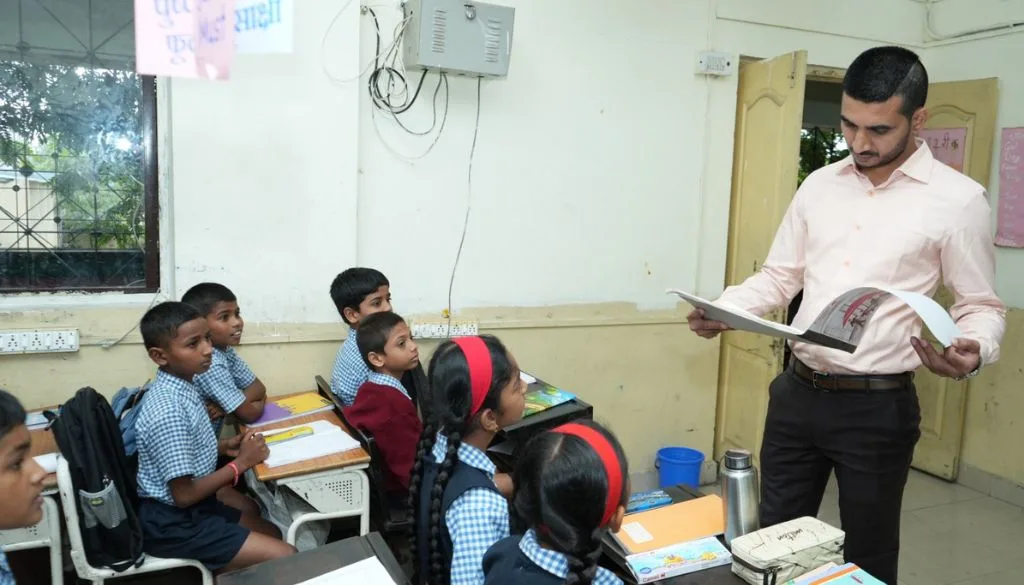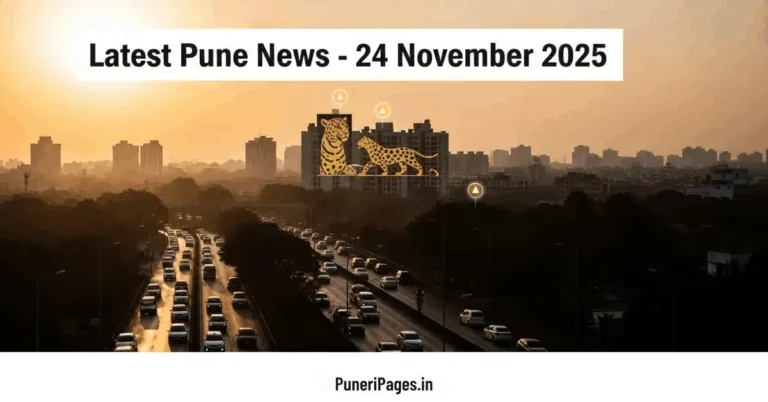
A PCMC official uncovers alarming conditions during a surprise school inspection—read the full story on puneripages.in.
By Prashant for PuneriPages.in
In an unannounced move meant to shake the system into accountability, PCMC Additional Commissioner Pradeep Jambhale recently conducted surprise inspections across several civic-run schools in Pimpri-Chinchwad. The goal? To assess the ground reality of the much-touted Direct Benefit Transfer (DBT) scheme for school kits and to review basic infrastructure in classrooms and campuses.
These inspections are more than just administrative checklists. They are snapshots of how well—or how poorly—public institutions are serving the very children they claim to uplift.
Table of Contents
What We Know:
- Who: PCMC Additional Commissioner Pradeep Jambhale
- What: Surprise inspections of civic schools in Pimpri-Chinchwad
- Why: To evaluate DBT kit distribution and assess school infrastructure
- Key Findings: Lapses in cleanliness, poor maintenance of records, and DBT-related delays
What is the DBT Scheme?
- Definition: DBT stands for Direct Benefit Transfer. Instead of providing school supplies directly, PCMC transfers funds to parents’ bank accounts.
- Purpose: To empower parents to buy uniforms, shoes, bags, and stationery directly, thus avoiding delays and corruption in centralized procurement.
- Challenges: The success hinges on timely fund transfers and accurate school recordkeeping. If either fails, students start the year without basic supplies.
What the Surprise Inspections Uncovered
The inspections, which were not pre-announced, caught several schools off-guard. While the intention behind such visits is to get an unfiltered view of daily functioning, what was found painted a concerning picture:
- Sanitation Issues: Some schools had unhygienic toilet conditions, posing health risks to students.
- Recordkeeping Gaps: Incomplete or delayed student attendance logs and outdated DBT data entries.
- Infrastructural Gaps: Broken furniture, non-functional fans, and general neglect in classroom upkeep.
Commissioner Jambhale didn’t just take notes—he took action. On-the-spot instructions were issued:
- Immediate Clean-Up Orders: Schools were told to address sanitation lapses within 48 hours.
- Data Deadlines: Officials were ordered to complete and verify DBT-related student data by a fixed date.
- Accountability Notes: Principals were warned that failure to act could lead to formal action.
Why It Matters: The Real Stakes Behind the Visit
For many families in PCMC’s rapidly urbanizing areas, civic schools are the only affordable option. When funds are delayed or classrooms are in disrepair, the burden falls on children who are already on the back foot.
In fact, this inspection follows a series of complaints from parents:
“My daughter is still wearing last year’s torn shoes. We haven’t received a single rupee from the scheme yet,” said a mother from a Nigdi-based civic school.
It’s this kind of feedback that underscores the importance of not just launching schemes, but ensuring they function where it matters most: on the ground.
Bigger Picture: A Step in the Right Direction, But Not the Destination
While the surprise inspection is commendable, it can’t be a one-off. Regular monitoring, timely DBT disbursements, and responsive grievance redressal must follow. Without these, the gains of such accountability exercises are quickly lost.
The inspection has set a tone, but now it’s about follow-through. As the city continues to grow, so do the stakes. Our children’s futures cannot be subject to administrative delays or infrastructural apathy.
Conclusion: Accountability Starts With Action
Commissioner Jambhale’s visit put schools under the microscope. It revealed what many parents already knew but felt powerless to fix. The hope now is that this leads not just to clean toilets and accurate registers, but to a school system that truly serves every student it promises to uplift.






